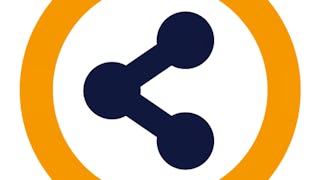Although many would prefer to leave science in the past and no longer engage with it once completing compulsory science classes in school, the reality is that engaging with science is an integral part of our daily lives. Moreover, for the safety and wellness of human society, it is necessary to engage with scientific information. We are faced with the necessity of examining scientific evidence on topics ranging from conservation to public health and make decisions that impact not only our families but those around us. However, in spite of decades of science education reform and dedicated efforts to improving science literacy, many members of the general public lack the confidence, skills, or interest in engaging with scientific issues, instead choosing to align their scientific decisions with non-scientific stakeholders, such as political or pop culture figures. These problems are ongoing and destructive. How do we communicate science more effectively with the general public? With other scientists?

Gain next-level skills with Coursera Plus for $199 (regularly $399). Save now.

Designing Effective Science Communication

Instructor: Melanie Peffer
9,529 already enrolled
Included with
(130 reviews)
Recommended experience
What you'll learn
Describe principles of human learning that are important to consider when designing science outreach activities.
Compare and contrast modalities for science communication/outreach.
Identify common pitfalls in science communication/outreach.
Design a science communication/outreach activity based on principles learned in this course.
Skills you'll gain
- Scientific Methods
- Program Evaluation
- Photography
- Education Software and Technology
- Writing
- Learning Theory
- Technical Communication
- Research
- Interviewing Skills
- Infographics
- Community Outreach
- Human Learning
- Oral Expression
- Media and Communications
- Storytelling
- Learning Management Systems
- Education and Training
- Science and Research
- Persuasive Communication
- Technical Writing
Details to know

Add to your LinkedIn profile
See how employees at top companies are mastering in-demand skills

There are 5 modules in this course
In this module, you will learn the basics of human learning, including an overview of the cognitive processes that underlie learning (e.g. perception, attention, motivation, memory), major educational psychology theories (e.g socioculturalism, constructivism, behaviorism) and aspect of human cognition that can lead to difficulties with outreach (e.g. bias, motivated reasoning, epistemic cognition). We will also discuss use of evidence in designing outreach, how to evaluate types of evidence, and principles behind effective design of outreach.
What's included
5 videos4 readings1 assignment1 discussion prompt1 plugin
In this module, you will learn important considerations for effective oral presentations, including best practices for giving live, recorded, and virtual presentations. In addition, we will also cover best practices for creating visual supports (poster, PowerPoint slides) to help communicate your message during an oral presentation. We will also discuss best practices for media interviews.
What's included
3 videos6 readings2 discussion prompts
In this module, you will learn best practices for writing as a vehicle for science communication. Rather than focusing on grammar and general writing mechanics, this section will focus on how to effectively use the written form as a tool for science outreach, including how formal scientific writing varies from pieces for the general public.
What's included
3 videos3 readings1 peer review1 discussion prompt
In this module, you will learn about technological forms of science communication outside traditional media (e.g. written or oral communication). In this module, we will discuss how science is communicated through various forms of educational technologies, including computer games, simulations, and social media. We will also briefly discuss learning analytics and their utility in understanding learning in technology-based environments.
What's included
4 videos1 reading2 discussion prompts
In this module, you will learn about the importance of artistic forms of science communication. The arts can serve as an important gateway between scientists and the rest of society making difficult or abstract concepts feel more personal and less intimidating. Here, we will talk about use of art, such as photography as well as music to help feel others connected to science topics.
What's included
4 videos6 readings1 peer review1 plugin
Instructor

Offered by
Explore more from Research Methods
 Status: Free Trial
Status: Free TrialUniversity of Colorado Boulder
 Status: Preview
Status: PreviewErasmus University Rotterdam
 Status: Free Trial
Status: Free TrialUniversity of Colorado Boulder
 Status: Preview
Status: PreviewIllinois Tech
Why people choose Coursera for their career




Learner reviews
130 reviews
- 5 stars
72.30%
- 4 stars
22.30%
- 3 stars
4.61%
- 2 stars
0.76%
- 1 star
0%
Showing 3 of 130
Reviewed on Jan 31, 2025
The content is thoughtfully designed, with several highly useful and surprising elements. However, some technical aspects, such as image resolution and the assignment review system, could be improved.
Reviewed on Jan 2, 2022
This course covers the necessary topics and activities on scicom. It also helped me change my mindset on how to deliver science to my desired audience.
Reviewed on Oct 24, 2024
Great way to understand more abaout how to communicate science through art

Open new doors with Coursera Plus
Unlimited access to 10,000+ world-class courses, hands-on projects, and job-ready certificate programs - all included in your subscription
Advance your career with an online degree
Earn a degree from world-class universities - 100% online
Join over 3,400 global companies that choose Coursera for Business
Upskill your employees to excel in the digital economy
Frequently asked questions
To access the course materials, assignments and to earn a Certificate, you will need to purchase the Certificate experience when you enroll in a course. You can try a Free Trial instead, or apply for Financial Aid. The course may offer 'Full Course, No Certificate' instead. This option lets you see all course materials, submit required assessments, and get a final grade. This also means that you will not be able to purchase a Certificate experience.
When you purchase a Certificate you get access to all course materials, including graded assignments. Upon completing the course, your electronic Certificate will be added to your Accomplishments page - from there, you can print your Certificate or add it to your LinkedIn profile.
Yes. In select learning programs, you can apply for financial aid or a scholarship if you can’t afford the enrollment fee. If fin aid or scholarship is available for your learning program selection, you’ll find a link to apply on the description page.
More questions
Financial aid available,
¹ Some assignments in this course are AI-graded. For these assignments, your data will be used in accordance with Coursera's Privacy Notice.

